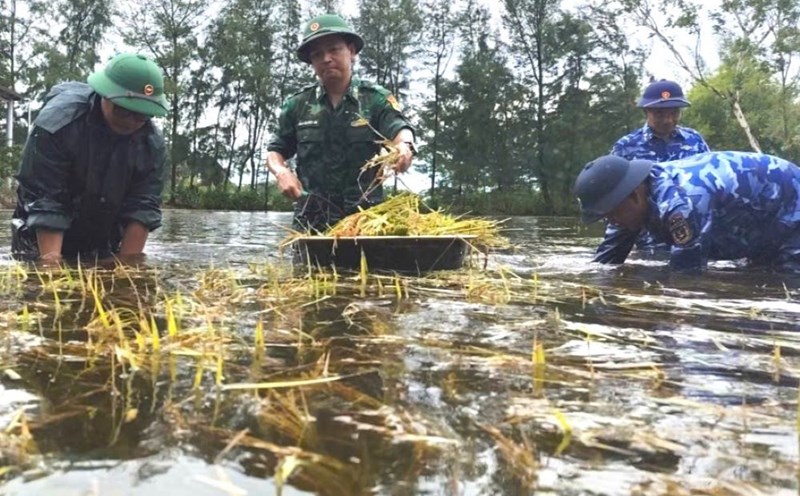OM 18 rice (fresh) is at 6,000 - 6,200 VND/kg; OM 5451 rice (fresh) is at 5,900 - 6,000 VND/kg; OM 308 rice is at 5,700 - 5,900 VND/kg; IR 50404 rice (fresh) fluctuates around 5,700 - 5,800 VND/kg; Nang Hoa 9 rice is at 6,000 - 6,200 VND/kg; Dai Thom 8 rice (fresh) is priced from 6,100 - 6,200 VND/kg.
Ms. Ho Thi Nhien (a farmer in Dong Thuan commune, Can Tho city) shared that each kg of her fresh Dai Thom 8 rice is purchased by traders for 6,200 VND. This price is about 500 VND/kg lower than the time of year, but if deducting all production costs, Ms. Nhien still makes a profit.
According to Mr. Nguyen Thanh Tam (a farmer in Trung Hung commune, Can Tho city), market demand is average, but thanks to traders' regular purchases, the harvested rice is consumed as much as possible. With a yield of 6 tons/ha, after deducting the costs of agricultural materials, labor, machinery, farmers in the past could make a profit of about 1.2 - 1.5 million VND/1,000m2.
Meanwhile, at traditional markets, retail rice consumption is somewhat slower, prices are stable. Currently, Nang Nhen rice has the highest price of VND 28,000/kg; Huong Lai rice 22,000 VND/kg; long grain fragrant rice from 20,000 - 22,000 VND/kg; Nhan Hoa rice 21,000 VND/kg; Taiwanese fragrant rice 20,000 VND/kg; Jasmine fragrant rice fluctuates at 16,000 - 18,000 VND/kg; common white rice at 16,000 VND/kg; Soc rice often fluctuates at 16,000 - 17,000 VND/kg; rice often fluctuates at 13,000 - 14,000 VND/kg;...
Mr. Pham Thanh Phong, owner of Thanh Phong store in Phuoc Thoi ward, Can Tho city, said that rice prices have been quite stable in recent days, only decreasing slightly in some less popular types. In general, consumer purchasing power is quite low, focusing on rice with prices ranging from 18,000 - 20,000 VND/kg. In contrast, rice prices above VND20,000/kg are currently recording a significant decrease in purchasing power.
In thunderstorms, the Department of Agriculture of Can Tho City recommends that farmers promptly contact dam harvesters and traders to harvest in time, reducing losses. For the newly harvested area, it is necessary to clean the fields, fertilize the elephant manure at the beginning of the season and ensure a time to distance the two seasons by at least 3 weeks to avoid organic poisoning.











